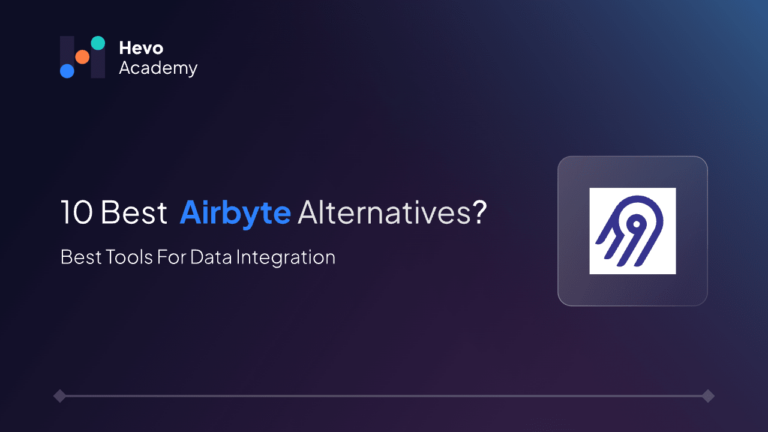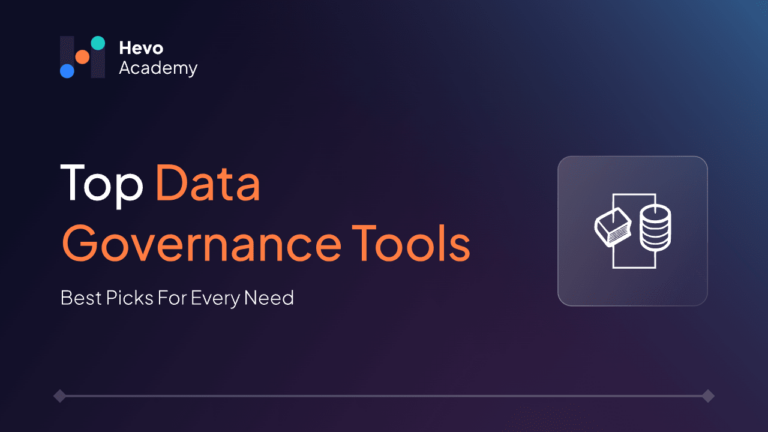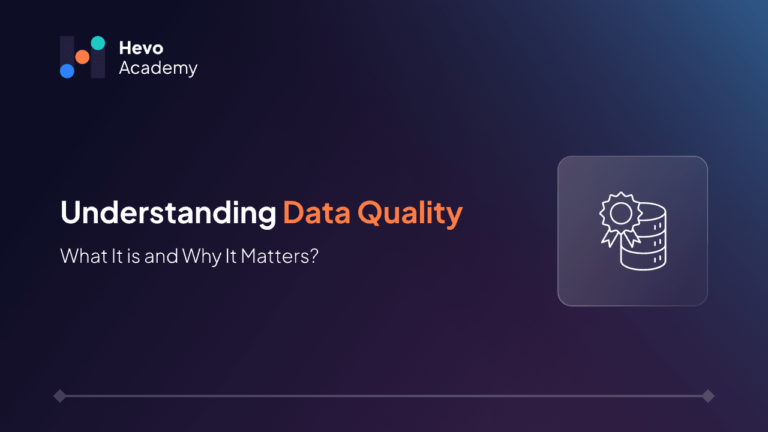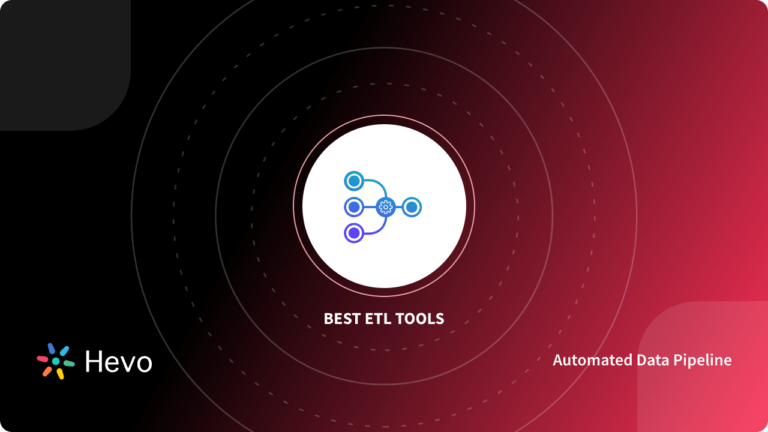Data is the oxygen of modern organizations. Companies use data to make crucial decisions on everything from management to marketing. Data needs to be analyzed for better decision-making. However, before getting to the analysis part, it is necessary to organize and store data the companies generate daily. For this, data warehouses are used to store and transform data. Now, the question is how to move data from multiple sources to one centralized location, that is, a data warehouse.
Table of Contents
This is where data pipelines come into play. They conveniently move your data from one location to another. You can choose from many automated pipeline solutions that meet your needs and save your organization time and money in building one.
In this article, I’ll walk you through a basic introduction to data pipelines and Airbyte, an automated tool, and 10 Airbyte alternatives and competitors that you can consider according to your requirements.
What Is Airbyte?
Airbyte is an open-source data integration tool designed to simplify the process of building and managing data pipelines, especially for extracting data from various sources and loading it into data warehouses, databases, or lakes.
It provides a wide range of connectors for data sources and destinations, enabling users to centralize data seamlessly. It also supports custom connectors, thus making it flexible and letting you tailor it to suit your needs. Its open-source model allows users to make community-driven improvements and offers both cloud-hosted and self-hosted options.
Pros Of Airbyte
- Airbyte is an open-source tool. This makes it very adaptable and supports the creation of custom connectors, which quite adapt to various data needs to a great degree.
- Airbyte regularly updates its connector library, making integrating new data sources and destinations easy.
- Its open-source nature, along with pay-as-you-go pricing, offers full transparency, and you may use it according to your budget.
Cons Of Airbyte
- Connectors are probably less stable or require more interaction from the user, as Airbyte is a relatively new tool.
- Airbyte has issues with high data volume imports or complicated transformations, as reported by many users.
- The community support has been responsive, but dedicated support is limited unless the customer opts for a paid plan.
- Another problem many users face is poor documentation, as per reviews on G2 and Gartner.
You can check out Airbyte’s pricing on their website.
There are various other Airbyte alternatives available. These Airbyte competitors have various features that substitute for all the cons of Airbyte mentioned above. I’ve listed 10 tools below that can be used instead of Airbyte.
10 Airbyte Alternatives And Competitors To Use In 2025
1) Hevo
Hevo is a fully managed, no-code data pipeline platform that makes collecting, transforming, and loading data simple. It takes data from multiple types of sources to destinations, which could include a data warehouse or a database. It’s designed to make things very easy for a user and uses pre-built connectors, so users do not need any technical knowledge. They then automatically handle ETL/ELT processes that enable the data to be accessed without much hassle. Additionally, it allows for real-time data syncing that gives much quicker insight into business and other important decisions.
It has options for transforming by a drag-and-drop interface or with custom Python scripts if the user prefers. Hevo has a feature called auto schema mapping to automatically detect the schema of the incoming data and create tables in the destination. This makes the data replication process a smooth ride for the user.
With assured data security, CDC, extensive documentation, and 150+ sources, Hevo is feature-rich and adaptable to your organization’s data needs.
Pros:
- User-Friendly: Hevo is no-code and has a user-friendly interface for non-tech users.
- Real-Time Sync: It provides real-time data synchronization, implying data freshness.
- Reliable Support: Hevo offers customer support around the clock for instant resolution of any problem.
Cons:
- Costly: It is expensive for small business ventures or startup businesses. It is more suited for medium to large-scale businesses.
- Complicated transformations: Not flexible for complicated transformations of data. However, you can quickly contact Hevo’s engineering team for customizations and transformations.
You can check out Hevo’s pricing on its official website. You can consider Hevo as one of the best Airbyte alternatives out there.
2) Fivetran
Fivetran is a fully managed data integration platform and a major Airbyte competitor. It focuses on ETL as automation, where it simply extracts data from varied sources and loads the extracted data to the data warehouses and analytics tools. This is what Fivetran did for Airship. One of its customers followed the “set it and forget it” rule, which completely automated the ETL process.
This platform is known for providing connectors, nearly 500+ in many different applications, and giving significant importance to the accuracy of the data, reliability, and minimal maintenance to users seeking the centralization of the data for analysis.
Pros:
- Maintenance is Automatic: Fivetran does the schemas and syncs the sources and destinations automatically.
- Reliability: In terms of data accuracy, it will give completely consistent, error-free, and synchronized data.
- Scalable support: It keeps changing its features according to business needs related to its data.
Cons:
- Pricey: Expensive in the case of minor organization setups.
- Data Volume Charges: This is a pricing method by data volume, and pricing may be unpredictable.
- Faulty Connectors: Customers have complained about connection issues on sites like G2.
- Poor Customer Support: Fivetran has left many users unsatisfied with their customer support service.
You can check out Fivetran’s pricing on its official website. Fivetran is one of the most widely used Airbyte alternatives by organisations.
3) Stitch
Stitch is an open-source cloud ETL tool that allows an easy integration process when data from several different sources are integrated, and the resultant data is loaded into data warehouses and analytics platforms.
Stitch is easy to use, transparent, simple to set up, and easy on the pocket when offering flexible pricing models, allowing businesses to scale in multiples based on data volumes. It is user-friendly and offers connectors for standard data sources on demand. Stitch is flexible for small to medium-sized businesses to centralize data without complexity and configurations.
Pros:
- Price-Friendly: Offers competitive pricing using the pay-per-row model.
- Ease of use: The product is simple to set up and friendly enough for non-technical users.
- Flexible: Follows an open-source model, which means that the community is in charge of updates; customization is available.
Cons:
- Limited Transformations: Transformation capabilities are limited and may require a separate tool.
- Connector Limitations: It has fewer connectors than the other platforms, just 130 sources.
- Support: Limited support is available unless using paid plans.
You can check out Stitch’s pricing on its official website. Stitch is a well-known Airbyte competitor out there.
4) Apache Airflow
Apache Airflow is an open-source, web-based platform for designing, scheduling, and monitoring workflows. Since its architecture is in Python, this offers a user the means to define and manage DAGs or the Directed Acyclic Graph. This allows great flexibility on how one deploys Airflow, from general ETL use cases to more intensive data processing and machine learning workflows.
Data engineers greatly love this tool since users can orchestrate workflows that rely on others. This feature alone makes it shine great within complex pipelines.
Pros:
- Highly Customizable: Python-based; very complex and tailored workflows can be done.
- Community Support is Strong: Huge user community and great documentation support.
- Scalable: Great for large-scale workflow management.
Cons:
- Very difficult to learn: Technical setup and management are required.
- No Real-Time Processing: Apache Airflow mainly supports batch processing. In the case of real-time data needs, it falls short.
- Manual maintenance: It requires hands-on management and debugging.
You can check out Amazon-managed workflow pricing for Airflow on AWS’s official website. Being an open source tool, Airflow is considered one of the most widely used Airbyte alternatives.
5) Informatica
Informatica is a data-integration product that allows organizations to design, automate, and make data pipelines across multiple environments such as on-premise, cloud, and other hybrid.
Its ETL proficiency is more advanced, with extensive data transformation, cleansing capabilities, and governance features.
This makes it ideal for large enterprises with complex data needs. Its extensive connector range offers versatility and reliable integration with diverse data sources.
Pros:
- Rigorous ETL functionalities: It has the broadest scope of data transformation and cleansing capabilities.
- Data Governance: It has robust tools for data governance that keep data quality and compliance with all regulations.
- Scalable: It is best used for large enterprises and a complex data architecture.
Cons:
- Expensive: Very costly, especially for the small business.
- Difficult Setup: It requires great expertise to set up the product and maintain it for proper functionality.
- Resource Consumption: It consumes many infrastructural resources.
You can check out Informatica’s pricing on its official website. Many companies use this as one of the Airbyte alternatives
6) Talend
Talend is a comprehensive platform that lets users design, deploy, and manage data pipelines across cloud and on-premises environments. Built on open-source foundations, it combines data integration, quality, and governance with an easy drag-and-drop interface.
Talend supports real-time processing, connecting data from multiple sources, making it a versatile solution for small and large enterprises.
Pros:
- User-Friendly: The drag-and-drop interface helps in the easy creation of a pipeline.
- Open Source Options: Offers flexibility through open source and paid options.
- Comprehensive Toolset: Offers data quality and governance features.
Cons:
- Performance: It may take a little time with the large data volumes.
- Learning Curve: Some features are technical and require knowledge to utilize them fully.
- Licensing Costly: The paid versions are expensive to use for advanced functionalities.
You can check out Talend’s pricing on its official website. Talend was created a year before Airbyteand is considered one of the strongest Airbyte competitors.
7) Pentaho
Pentaho is a data integration software that integrates business analytics. It provides drag-and-drop elements for a user-friendly interface and can support almost all known data sources.
It can support the ETL, data warehouse, and report development tasks. It supports small and large businesses; the characteristics include data integration, transformation, and visualization across one framework.
Pros:
- Ease of Use Interface: It has a drag-and-drop design that makes pipeline building very easy.
- End-to-End Solution: It puts together data management with analytics and reporting.
- Cost Effective: It comes as an open-source community edition.
Cons:
- Performance Limitation: It starts to flounder with enormous data sets.
- Complex Installation: Sophisticated features are very technically demanding to install.
- Limited Support: With the open-source edition, you have limited options for support.
You can check out Pentaho’s pricing on its official website.
8) Portable
Portable is a type of data pipeline tool specially designed for easy deployment and portability, which allows the user to move easily between environments, including being on the cloud, within the premises, and in all forms of hybrid systems.
It reduces integration complexities with pre-built connectors and customizable workflows. Portable also provides businesses a flexible, scalable, and hassle-free data integration solution without complex setups.
Pros:
- Environment: Scalable deployment with cloud, on-premise, and hybrid environments
- Easy setup: It can quickly deploy with low overhead of configuration
- Scalability: Scales with your business needs, including scaled data.
Cons:
- Feature limitations: cCustomization limits and limited integrations trouble the users.
- Connector variety: tThe connectors come in fewer numbers compared to established tools
- Support: The support provided is limited unless you consider premium plans.
You can check out Portable’s pricing on its official website.
9) Integrate.io
Integrate.io is a cloud solution for a data pipeline developed to make ETL and ELT processes easier for data integration and transformation across various sources and destinations.
Integrate.io is famous for its user-friendly, low-code interface, which makes it easy for teams to create complex workflows without deep technical expertise. It allows many connectors and supports features like data cleansing, transformation, and real-time syncing.
Pros:
- Easy to Use: The low-code interface setup pipeline is easy.
- Real-Time Data Sync: Real-time syncing supports maintaining freshness of the data.
- Comprehensive Connectors: Offers wide connectors for greater flexibility.
Cons:
- Expensive for Small Businesses: High pricing can be very costly for minor operations.
- Limited Customization: Transformation cannot be very customized and limited options.
- Huge data sets: Large datasets may cause tremendous slowdowns in performance.
You can check out Integrate’s pricing on its official website.
10) Astera
Astera is an integration and ETL platform that enables business users to design, automate, and manage data pipelines using a straightforward visual, drag-and-drop interface.
Directed at making complicated workflows for dealing with data easy, Astera supports various sources and formats in data migration and integration and reporting. As long as one’s design is intuitive, Astera can be used in business, especially for businesses seeking streamlined data processes without massive coding exercises.
Pros:
- User-Friendly Interface: The Drag-and-drop approach is intuitive to non-technical users.
- Rigid Data Compatibility: Supports multiple data types and sources effectively
- Work Flow Automation: It supports pipeline automation for effective and efficient workflow management.
Cons:
- Expensive: It can be expensive to smaller organizations
- Less advanced customization: It lacks in depth complicated transformations
- Support dependent: It needs support for complicated problem solving.
You can check out Astera’s pricing on its official website.
Conclusion
This blog has listed 10 Airbyte alternatives that can help you move your data from one location to another with ease. These automated tools, which are Airbyte competitors, save time and resources for organizations by reducing the burden of creating a data pipeline in the company.
This ensures that engineering prowess can be used elsewhere instead. Each tool has pros and cons, and you’ll need to decide which would suit your needs the best after considering them all. The pricing models of some tools are pay-as-you-go types, and some have fixed plans. Considering your requirements and budget flexibility, pick the data pipeline that will fulfill your business needs the best.
If you are looking for a tool to simplify your data integration process for efficient replication, try Hevo. Hevo is a cost-effective and reliable tool that migrates your data from source to target within Minutes! Sign up for Hevo’s 14-day free trial and experience seamless data migration.
FAQs
1. Who does Airbyte compete with?
Airbyte competes with other data integration and ETL (Extract, Transform, Load) tools such as Fivetran, Stitch, and Talend. It also faces competition from cloud-native solutions like AWS Glue and Google Cloud Dataflow, which offer similar data pipeline capabilities.
2. Is Airbyte better than Fivetran?
Airbyte suits those needing open-source flexibility and customization, while Fivetran offers ease of use and automated schema migrations, which are ideal for simplifying data integration. Which is better depends on specific use cases.
3. What are the disadvantages of Airbyte?
Airbyte has a steeper learning curve than user-friendly solutions like Fivetran, especially for those new to open-source tools. Additionally, its community support is smaller, which can limit troubleshooting and feature request options compared to more established competitors.
4. What is the difference between Debezium and Airbyte?
Debezium specializes in change data capture (CDC) for real-time database changes, while Airbyte is an ETL tool for batch and real-time data integration across sources to data warehouses. Airbyte offers more connectors and transformation options, whereas Debezium focuses on efficient database change processing.





